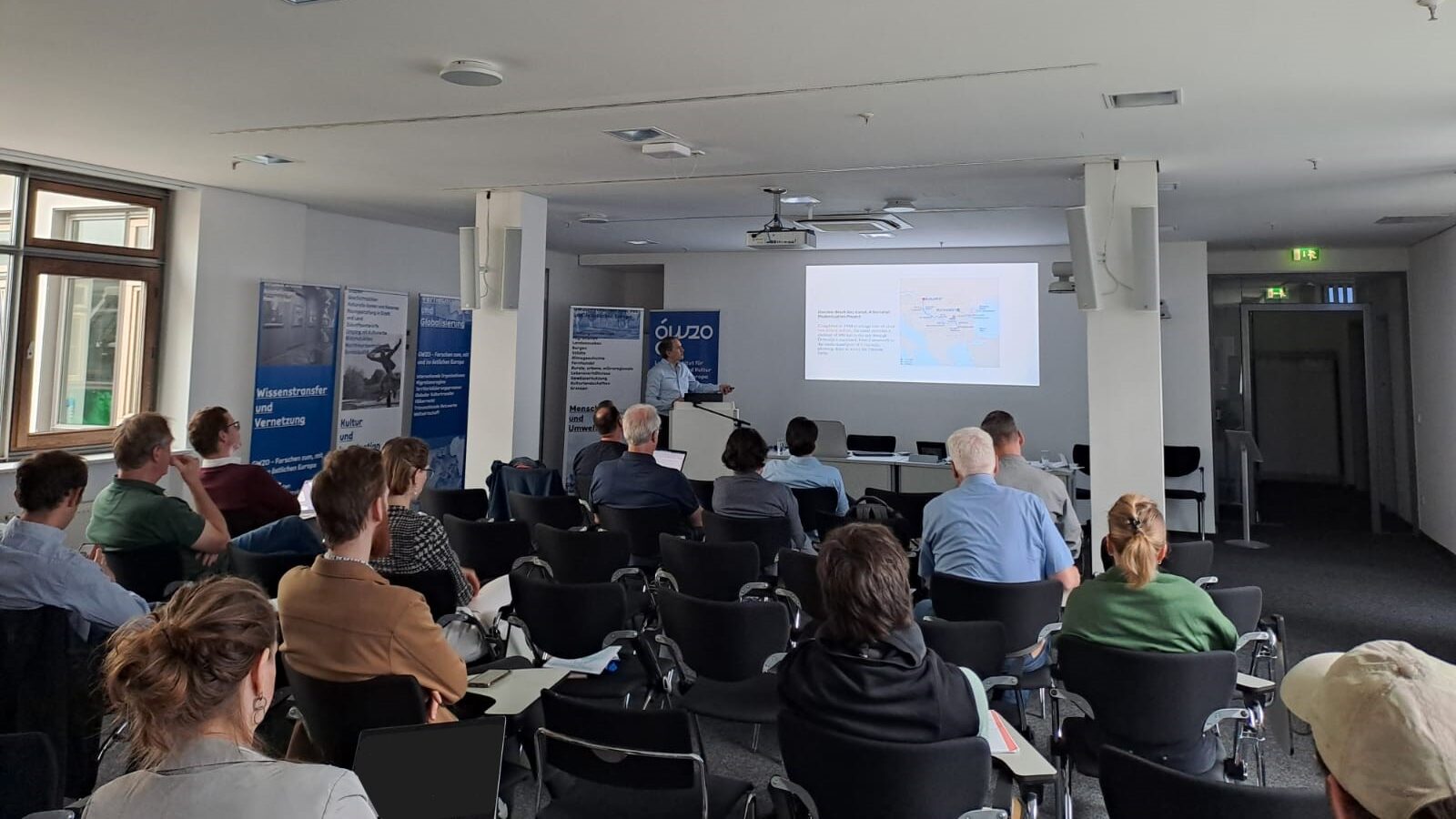Spotkanie międzynarodowego grona badaczy zajmujących się problematyka wody w epoce antropocenu było kolejną okazją do prezentacji projektu „Dziedzictwo rzeki”.
Konferencja „Assessing the Fluvial Anthropocene. Agency, Materiality and Culture in Eastern European Hydroscapes” zorganizowana została w Lipsku w dniach 2-3 maja 2024 roku przez dwa instytuty badawcze: The Leibniz Institute for the History and Culture of Eastern Europe (GWZO) oraz The Leibniz Institute for East and Southeast European Studies (IOS). Pierwszy dzień poświęcony był historii lokalnej oraz różnym przykładom dziedzictwa. Wykład wiodący (key-note) wygłosił prof. Dirk van Laak (GWZO, Leipzig). Wystąpienia drugiego dnia konferencji dotyczyły problematyki industrializacji rzeki, infrastruktury oraz przekształceń mokradeł (wetlands). Na zakończenie uczestnicy mogli zapoznać się z urbanistyką i kulturą rzeczką Lipska.
W ramach panelu „ Heritage vs. Resource Exploitation in Urban Spaces and Beyond” zaprezentowany został referat pt. “Evolution of the Warta River waterscape in Poznan, Poland. A heritagisation perspective”.
Evolution of the Warta River waterscape in Poznan, Poland. A heritagisation perspective
Abstract
Poznan, Poland is one of the largest cities in northwestern Poland, while the Warta River is the third longest river in the country. Situated close to the German border, the history of the city combines the time of Polish and German governance. The city’s relationship with the river is an example of a typical use of water for economic and cultural purposes.
The paper focuses on the history of the Warta River in the 19th and 20th centuries and the place in the city centre called „Poznan Venice”. The period between the first attempts at modern river regulation in the early 19th century and the contemporary heterogeneous yet anthropocentric landscape planning shows not only the eco-economic tensions between exploitation and restoration, but also different national strategies.
In conclusion, the paper examines the question about the process of becoming Poznan Venice and Warta River a heritage. Bearing in mind the negative effects of heritagization, but at the same time appreciating the social values derived from heritage, I propose a resiliant approach: instead of reconstructing space (restoration), I look at the possibilities of preserving heritage in imaginary form.
